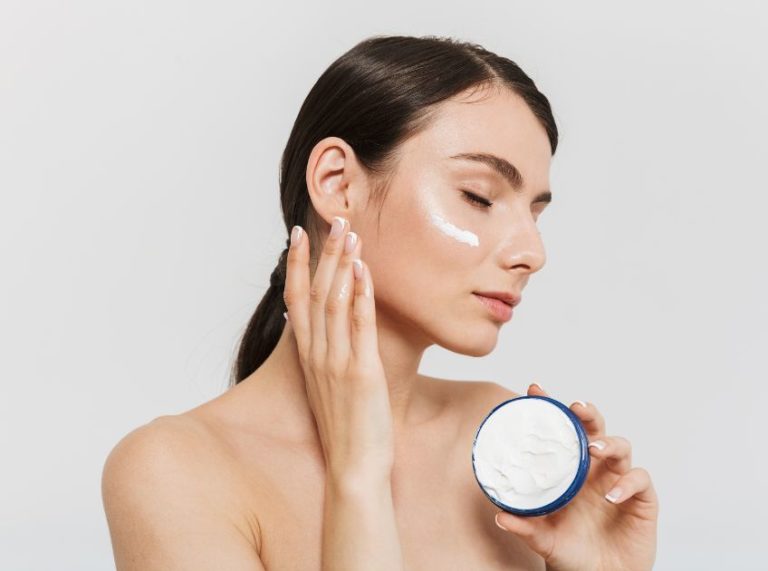
Important: This article is for informational purposes only. Please read our full disclaimer for more details.
If you have mouth discoloration, it could be due to hyperpigmentation. It’s a condition in which the skin develops dark patches. Skin injuries, hormone fluctuations, and drugs are all possible causes of hyperpigmentation around the mouth. While there are plenty of home remedies, dermatologists’ care may be more beneficial.
The black skin patches due to hyperpigmentation are usually tiny and can arise anywhere. The discoloration is the direct result of increased melanin production in the skin.
While hyperpigmentation is rarely harmful, it might indicate an underlying medical condition, poor lifestyle habits, or use of certain medications.
Although dark patches do not always require treatment, some people may find the skin darkening uncomfortable, depending on the size of the patches.
Here’s what you should know about the causes and cures for hyperpigmentation around the mouth.
What Causes Hyperpigmentation Around Mouth
Melanin is the pigment that provides your skin its natural color. Sun exposure, hormonal changes, drugs, and certain underlying diseases can all affect melanin synthesis, particularly on the face. This can result in hyperpigmentation spots, which may appear as darkening around your mouth.
Here are the major factors that induce hyperpigmentation around mouth-
1. Melasma

Melasma tends to occur on the face, particularly in the upper lip, chin, cheeks, nose, and forehead. Sun exposure might make the patches more visible. This condition is more prevalent among women.
2. Medication Side Effects
Some medications can increase the risk of hyperpigmentation. These include:
- Hormone replacements, especially estrogen.
- Doxycycline, a type of antibiotic that can increase sun sensitivity.
- Chemotherapy drugs.
3. Sun Exposure
Exposure to UV rays from the sun may raise the likelihood of developing dark patches on the skin. These include aging spots, sometimes known as sun spots or liver spots. These are most prevalent on the face, chest, and arms.
Moreover, sun exposure can also exacerbate melasma. If you avoid putting sunscreen on your mouth and lips, you put yourself in greater danger.
4. Concussion to the Skin
If you suffer a severe injury, acne breakout, burn, or infection around your mouth, you may develop hyperpigmentation after the skin heals. The resulting darkening, also known as post-inflammatory hyperpigmentation, often resolves within a few months.
5. Deficiencies of Vitamin
Skin pigment changes could also be caused by vitamin deficiency, such as Vitamin B12 and Vitamin D. It is reported that vitamin D deficiency was common in people with melasma.
Lack of vitamin D is most likely due to sun avoidance, as the sun aggravates melasma.
Who Is More Likely to Experience Hyperpigmentation Around the Mouth?
People with dark skin: Such people are more likely to get hyperpigmentation overall. This is due to the increased rate of melanin formation compared to people with light skin.
People exposed to UV radiations: As you age, you may see more spots on your face, chest, and other places frequently exposed to UV radiation. If you do not wear sunscreen around your mouth, sun exposure makes you more likely to get skin darkening.
People living in sunny areas: You might notice discoloration spots around the mouth, worse during summer. This is probably due to more sun exposure, which can stimulate melanin and make hyperpigmentation more noticeable.
How to Treat Hyperpigmentation Around Mouth

Hyperpigmentation around the mouth can be more challenging to treat than other areas of the face, primarily due to the skin’s senstivity in this area.
Nevertheless, effective treatment options are available. Different ways to treat skin conditions include home remedies and medical treatment from a dermatologist.
Home Remedies to treat Hyperpigmentation
Apply sunscreen: Dark spots may vanish if you use sun protection, such as sunscreen. Sunscreen should be applied daily and reapplied as needed to the mouth area, which is frequently overlooked.
Exfoliate skin: Exfoliation and skin-lightening serums with antioxidants such as vitamin C may also help lessen the look of hyperpigmentation. However, the spots may recur shortly after you discontinue utilizing these procedures.
Use retinoids: Retinoids may also assist in skin lightening. Use these products gradually, starting every other day, until your skin adjusts to them. These products do not come without dangers and still conduct a patch test before use.
Remember, retinoids frequently produce dry and itchy skin. It is possible to experience some additional side effects, such as skin redness, itching, and peeling.
Medical Treatment for Hyperpigmentation
If you have skin discoloration around your mouth, a dermatologist may recommend different treatment options to help remove it permanently.
- Prescription-strength retinoids or hydroquinone.
- Azelaic acid to reduce discoloration and inflammation.
- Kojic acid for melasma and age spots.
- Laser therapy for dark spots.
- Chemical peels to help exfoliate the skin and reduce the appearance of pigmentation.
When to See a Doctor
Discoloration around the mouth can fade with time or after stopping certain medications. Melasma and sunspots may require treatment from a dermatologist.
You should see a dermatologist if home remedies don’t work for discoloration. A primary care doctor can address pigmentation-related medical problems and medication side effects.
Image Source : freepik
Related Articles
- Hyperpigmentation on Buttocks: Types, Causes, and Treatment
- How To Hide Dark Spots On Your Face Without Makeup
- Naturium Alpha Arbutin Essence Review
- 7 Best Moisturizers For Brightening Skin















